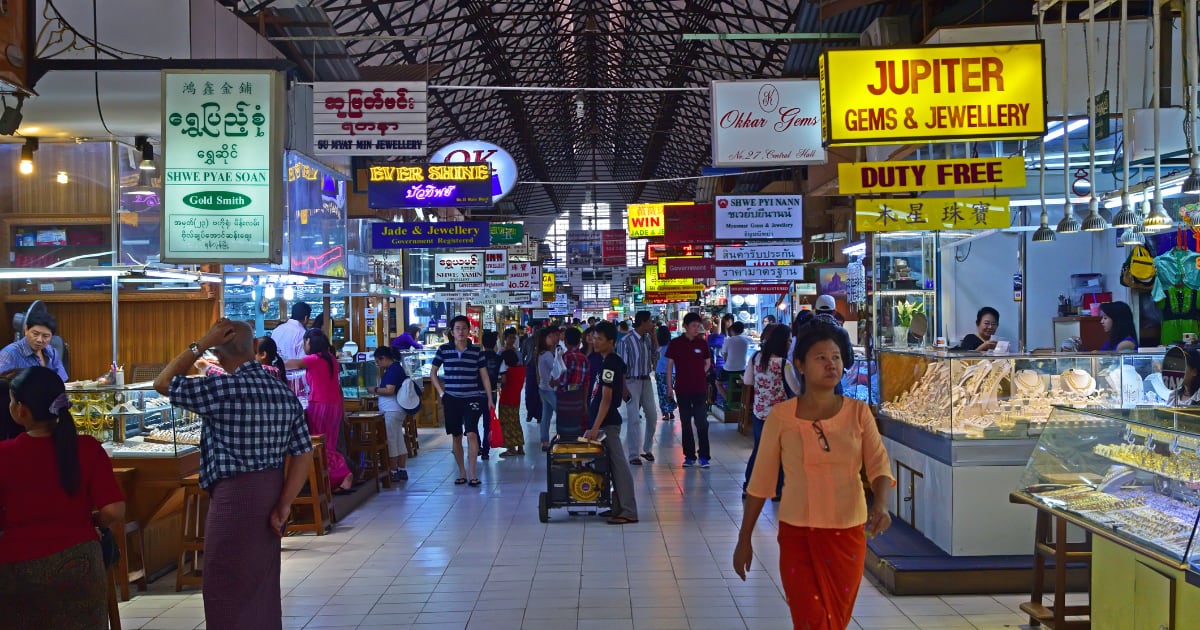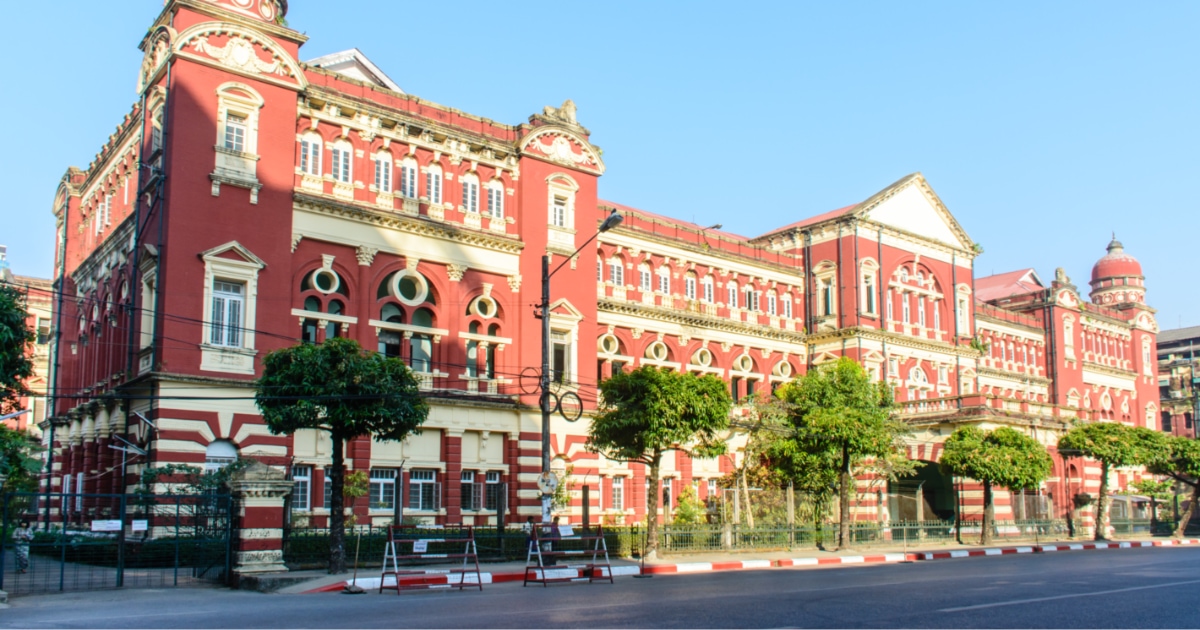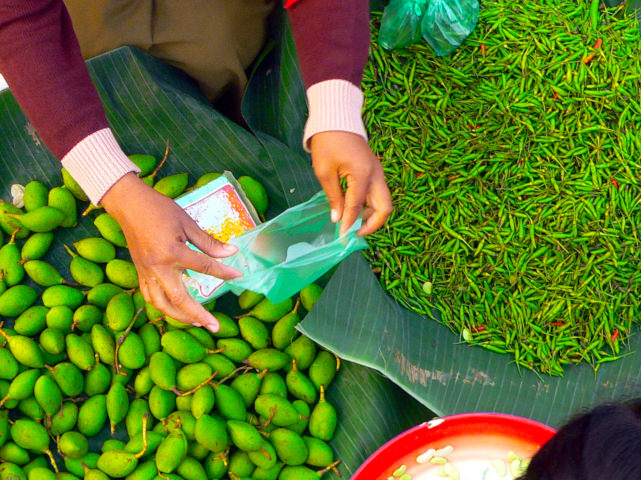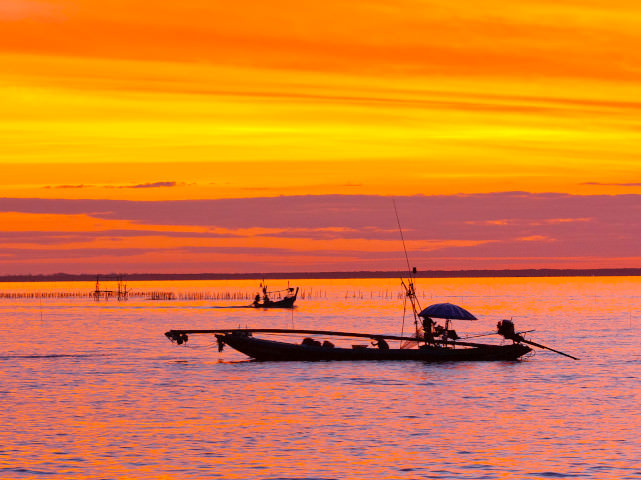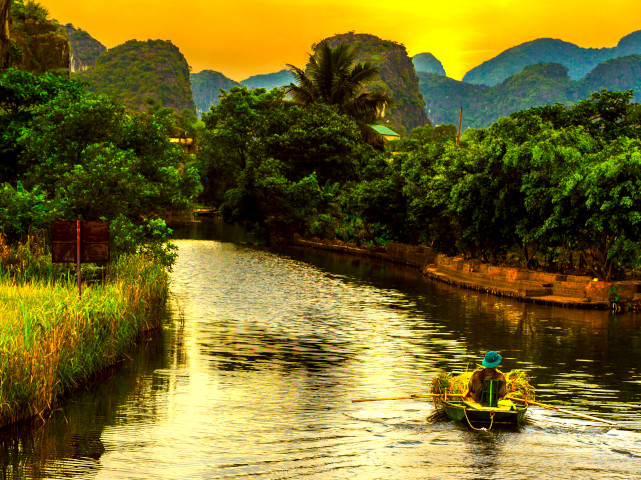Myanmar Highlights
October 2018
Download PDF | Download word version
Myanmar’s mining industry is expected to grow in 2019 following an increase in both foreign and domestic investment in the sector. According to U Than Soe, deputy permanent secretary of the Ministry of Natural Resources and Environmental Conservation (“MONREC”), it is anticipated additional permits for small-scale mining will be issued over the next twelve months. The Government has granted new approvals to local and foreign investments pursuant to the new Myanmar Mining Rule (“Mining Rules”) introduced in February 2018. Under the Mining Rules, foreign companies are permitted to invest in large-scale mining projects of more than 500,000 acres (202,000 hectares) as well as medium scale sites of up to 247.1 acres. MONREC will also allow investments in small-scale mining sites for gold and other precious metals of up to 4 acres, sites of up to 10 acres for other minerals and sites for raw industrial materials and precious stones of up to 20 acres. The development is a step forward for Myanmar mining after activities were suspended in 2016 to allow the government to assess the industry’s compliance with environmental rules and regulations.
Three-stage process
Under the 2016 Mining Law, mining investments are structured in three phases. Following the exploration and testing phase, a feasibility study is required to be produced to determine the anticipated environmental and societal impact of a proposed mining project. If mining activities at a certain site are expected to be profitable, then a proposal detailing the mining procedure and timeline must be submitted as part of the permit application process. Investors can commence the three-stage process after entering into an exploration agreement with the Department of Geological Survey and Mineral Exploration.
Investor interest
To date, MONREC has granted permission to mining companies from Australia, Thailand and China to commence the three-stage process, which could take between three and five years to complete. However, some regional and state governments have started permitting production activities at small and medium-sized mining blocks. These include resource rich Sagaing, Mandalay, Kachin, Magwe and Shan. In the large-scale mining sector, four out of eight mines operated by foreign companies are ongoing. The large-scale projects are primarily located in the Sagaing and Taninthayi regions and in Shan State. 900 applications received from local investors are currently under review.
(Source: https://www.mmtimes.com/news/growth-mining-industry-expected-investments-rise.html; 23 October 2018)
New rule require products imported to Myanmar to have Myanmar language labels
Myanmar’s Consumer Affairs Department will issue a new directive requiring imported goods to carry labels stating their contents and/or instructions in the Myanmar language. The directive, which is in line with the 2014 Consumer Protection Law, will take effect six months from the date it is issued. Initially importers will be permitted to display instructions on a sticker but will eventually have to ensure products carry printed labels. According to U Swe Tint Kyu, a director of the Consumer Affairs Department if importers fail to follow the directive after six months, they will be penalized and could have their import permit suspended or revoked.
(Source: https://www.mmtimes.com/news/new-rule-requires-imports-have-myanmar-language-labels.html-0; 24 October 2018)
Myanmar-Singapore joint-venture increases investment in aviation fuel import business
The National Energy Puma Aviation Services Company Limited (“Puma Aviation”), has increased its capital US$10.2 million in its Myanmar aviation fuel import, storage and distribution businesses. Puma Aviation is a Myanmar-Singapore joint venture company between the state-owned Myanmar Petroleum Products Enterprises and Singapore-based Puma Energy Holdings Pte. Limited. According to the Directorate of Investment and Company Administration, Puma Aviation’s initial capital was US$106.02 million. Since 2016, Puma Aviation has operated Yangon’s Thanlyin Liquefied Petroleum Gas Terminal. According to Government statistics, the oil and gas sector topped Myanmar’s foreign investment with US$22.41 billion, accounting for 29% of the total of US$77.285 billion foreign investment since late 1988.
(Source: http://www.xinhuanet.com/english/2018-10/25/c_137557332.htm; 25 October 2018)
Myanmar Investment Commission seeks to encourage Hong Kong investment interest in Myanmar
The Myanmar Investment Commission (“MIC”) has held Myanmar Investment Promotion seminar seeking to encourage investment from Hong Kong, which is already a leading source of foreign investment in Myanmar. More than 150 Hong Kong companies and an official of Hong Kong SAR’s government, Secretary of Commerce and Economic Development Edward Yau, attended the seminar. The Chairman of MIC, U Thaung Tun said the MIC is endeavoring to create an investor-friendly environment and is already making investment regulations more efficient and effective for investors. According to the Directorate of Investment and Company Administration (“DICA”), Hong Kong is the fourth largest investor in Myanmar after China, Singapore and Thailand. As of Sept. 30, Myanmar permitted US$7. 87 billion in investment from Hong Kong to date in 2018 accounting for 10% of the total permitted foreign investment in Myanmar. U Thaung Tun stressed that Myanmar has a young population who are highly literate and highly motivated and offer a great human resources potential for companies that are willing to harness it. Myanmar is seeking to attract US$320 billion in foreign investment for infrastructure by 2030. Foreign-direct investment in Myanmar declined by approximately US$3 billion in the year ending 31 March 2017 compared to year ending 31 March 2016. The Myanmar Investment Promotion seminar was held as part of Myanmar’s efforts to increase investment from East Asia countries. The Myanmar Government anticipates that foreign-direct investment will be a key driver of economic development according to the Myanmar Investment Promotion Plan 2018 which was published by MIC in October 2018. According to DICA, MIC has engaged numerous East Asian countries through its investment promotion activities, including Japan, Hong Kong and South Korea. Hong Kong is positioned to play a key role in facilitating the flow of trade and investment and closer links for economic integration between Hong Kong and ASEAN members including Myanmar. Hong Kong has also shown keen interest in potential investment opportunities brought about by China’s Belt and Road regional development project. In 2017, Hong Kong Chief Executive Carrie Lam met State Counselor Daw Aung San Suu Kyi in Myanmar to discuss trade promotion between both countries and Myanmar’s important role in China’s Belt and Road Initiative (“BRI”). In September 2018, the Greater Bay Area Myanmar General Chamber of Commerce (“GMGCC”) was formed to promote cross-border investments and collaborations between the Greater Bay Area and Myanmar. The “Greater Bay Area” is made up of Hong Kong, Macau, Guangzhou, Shenzhen, Zhuhai, Foshan, Zhongshan, Dongguan, Huizhou, Jiangmen and Zhaoqing and had a total of US$1.58 trillion in GDP in 2017 making it the fifth largest economy in Asia According the GMGCC, the chamber of commerce seeks to shape and facilitate sustainable and responsible investments along the Belt and Road routes, and connect the Greater Bay Area and Myanmar by creating a forum for meaningful exchanges of cutting-edge information, data and resources among stakeholders to drive multilateral policies, innovations and investments, serving as a platform for government bodies, business associations and local communities to better match resources, capital and professional services between Greater Bay Area and Myanmar. A Myanmar delegation also recently attended the 23rd Macao International Trade and Investment Fair which creates trade promotion activities between Asian countries and Portuguese-speaking countries (PSCs) through forums, discussions and exhibitions. This year’s exhibition theme was based on the BRI and the Guangdong-Hong Kong-Macau Greater Bay Area. In June, a Myanmar delegation including the chairman of MIC and officials from a number of relevant ministries attended the third annual Belt and Road Summit in Hong Kong. The meeting focused on exploring new opportunities under the BRI. In September 2018, the Myanmar government signed an MOU in respect to the China- Myanmar Economic Corridor, a part of the Chinese president’s ambitious foreign policy to build trade networks between at least 70 countries, connecting Asia, Europe and Africa. The estimated 1,700-kilometer-long corridor will connect Kunming, the capital of China’s Yunnan Province, to Myanmar’s major economic checkpoints—first to Mandalay in central Myanmar, and then east to Yangon and west to the Kyaukphyu Special Economic Zone.
(Source: https://www.irrawaddy.com/business/investment-commission-racks-hong-kong-investment-interest-myanmar.html; 22 October 2018)
Four foreign invested wholesalers granted approval by Ministry of Commerce
Since the opening up of the retail and wholesale retail sector in May 2018 the Myanmar Ministry of Commerce (“MOC”) has granted approval to four foreign and local joint ventures to establish operations. Under Notification 25/2018 issued on May 9, the MOC permitted 100% foreign-owned businesses to operate in the retail and wholesale sector in Myanmar. On July 26, the MOC issued standard operating procedures (“SOP”) for the registration of retail and wholesale business and a priority list of 24 products and items. Among the four companies is AEON Orange Co Limited (“AEON Orange”), a joint venture between Japanese retailer AEON Co. Limited and its local partner Creation Myanmar Group of Companies (“CMCG”). The joint venture distributes 15 of the 24 products on the priority list. AEON Orange opened its first supermarket in North Okkalapa, Yangon, and acquired 14 supermarkets operated by Hypermart Asia Co, Limited an affiliate of CMGC, in 2016. The MOC also permitted MYCARE Unicharm Co Limited, the Japanese wholesaler which distributes personal care products such as diapers, sanitary napkins, wet wipes and cosmetic puffs, to enter the domestic market. Local wholesaler Pacific Andaman (SEA) Co Limited, which distributes cleaning products and food and beverages, and retailer City Mart Holding Co Limited, which operates supermarkets and mini marts, have also been granted permits to invest. According to the MOC, a number of foreign investors including from Thailand and South Korea have expressed interest in establishing businesses in Myanmar. On September 3, the International Finance Corporation (“IFC”) said it would provide financing of approximately US$25 million to Metro Wholesale Myanmar Limited, wholesale joint venture between Germany-based Metro AG and Singapore-listed Yoma Strategic Holdings. Pursuant to the Notification 25/2018, 100% foreign-owned firms must make initial investments of between US$3 million and US$5 million to operate a retail or wholesale business, respectively, in Myanmar. For joint ventures where the local investor holds at least 20% equity ratio, the initial investments necessary for retail and wholesale are $700,000 and $2 million.
(Source: https://www.mmtimes.com/news/four-retail-wholesale-jvs-permitted-operate.html; 29 October 29 October 2018)
Myanmar Government to supply additional electricity to meet rising demand
According to the Ministry of Electricity and Energy (“MOEE”), arrangements have been made to ensure sufficient electricity supply to meet rising demand next year. Over recent years the average annual rate of increase in electricity consumption has been approximately 15%. However in the year ending 31 March 2019 the increase in demand is expected to increase by 19%. Accordingly the MOEE intends to raise supply to 3700 megawatts during the period. U Soe Myint, deputy permanent secretary of electricity at the MOEE, has warned that some projects may still be delayed, depending on the availability of funds. MOEE is expected to spend Kyats 578 billion (or approximately US$366 million next year, which includes international aid. According to U Khin Maung Win, managing director of the Electric Power Generation Enterprise (“EPGE”), Myanmar generates most of its energy through gas and hydropower plants. As construction of several hydropower projects is still ongoing, additional energy requirements for the fiscal year will be supplied by three gas-fired power plants, including the 225MW combined-cycle Sembcorp Myingyan gas plant, which commenced operations this month, a second gas plant producing 90MW of energy in Myingyan as well as a 145MW plant in Belin, Kyaukse. Meanwhile, construction of transmission lines, substations and distribution lines to transmit the energy generated to the national grid will need to be accelerated.
States and regions
According to the MOEE, the World Bank is assisting with the implementation of arrangements to supply electricity at various townships and villages in proportionate amounts by utilising state and regional budgets. At present, funds are being allocated towards expanding the national grid to Rakhine, Shan, Sagaing, Magwe and Mandalay. Sub-power stations will also be built across ten major cities, including Pathein, Dawei, Mawlamyine, Taunggyi and Loikaw, which, in turn, will provide electricity to more than 400 villages, in line with Myanmar’s National Electrification Project. The national grid expansion project will include development of infrastructure in Thilawa as well as the 117-mile 500KV Taungoo-Kamanat transmission line project and 230KV Mawlamyine-Ye-Dawei line. Upgrades are being carried out at the 118MW Thaton power station and other power stations in Hlawga, Alone, Ywama and Thaketa. The MOEE will also construct 66KV, 33KV, 11KV, 400 KV lines and sub-stations with the aim of alleviating poverty in poorer states and regions.
Hydro power
Over the longer term, several hydropower projects are expected to come on-stream. State funds will be deployed into developing only the smaller hydro power projects, while larger projects will be implemented with international help. At present, the Upper Yal Ywar Project, Upper Kyine Taung Project and Thahtay Hydro Project remain under construction and are expected to be in operation within the next 4-5 years, depending on the availability of finance. He added that the budget for electricity and energy is also under constant pressure as large sums are utilised to subsidise electricity for the country. This fiscal year, the government is expected to incur losses of up to K600 billion to subsidise electricity tariffs, which is up from K480 billion in 2017-18. Currently, residential prices in Myanmar are K35 per kilowatt-hour for the first 100 units, K40/kWh for the next 100 units, and K50/kWh for all units after that. With an average tariff of roughly US$0.03/kWh, these are the lowest residential prices in ASEAN, and among the lowest in the world.
(Source: https://www.mmtimes.com/news/govt-readies-additional-supply-electricity-meet-demand.html; 22 October 2018)
Myanmar Ministry of Commerce MIC foreign joint ventures
Myanmar Investment Promotion seminar
Hong Kong investment interest in Myanmar
Myanmar Government foreign-direct investment
Hydro power in Mynamar
Myanmar Mining Rules 2018
AEON Orange Co Limited
Hong Kong investment in Myamnar
Myanmar-Singapore joint-venture
Myanmar Ministry of Natural Resources and Environmental Conservation MONREC
Myanmar Consumer Affairs Department
Puma Aviation
Myanmar mining projects
Belt and Road Initiative
Myanmar mines law and rules
MIC law in Myanmar
This newsletter is for information purposes only. Its contents do not constitute legal advice and it should not be regarded as a substitute for detailed advice in individual cases.
Transmission of this information is not intended to create and receipt does not constitute a lawyer-client relationship between Charltons and the user or browser.
Charltons is not responsible for any third party content which can be accessed through the website.
If you do not wish to receive this newsletter please let us know by emailing us at unsubscribe@charltonslaw.com




